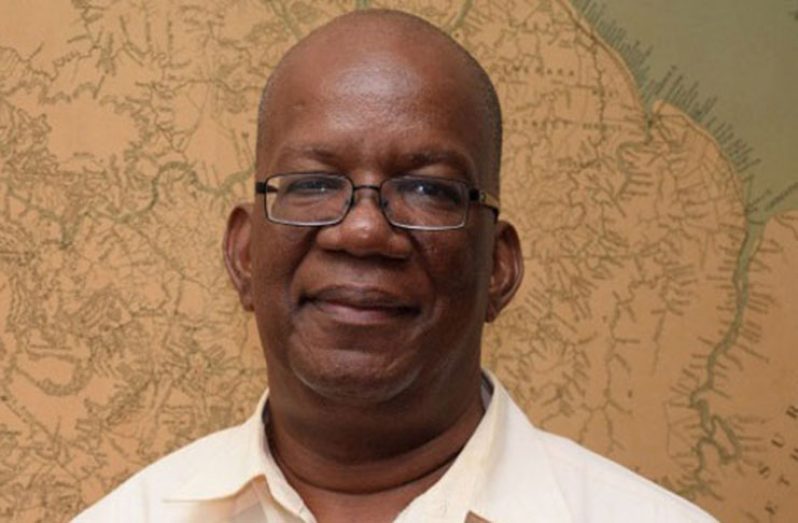— reminds bank of mandate to constituency members
FINANCE Minister Winston Jordan last Tuesday called on the Inter-American Development Bank (IDB) to remember its mandate to provide financial assistance to members within its constituency. Speaking at the Pre-Governor’s meeting held at the IDB headquarters in Washington, United States, on February 21, Minister Jordan noted the decline in the number of loans granted in 2015.
“Mr. President, we remain concerned with the bank’s loan approvals for our constituency members in 2016. Excluding Suriname, there were nine loans approved for a total of $264M, less than two-thirds of the amount approved in 2015. Loan approvals to Jamaica declined by 57 per cent while no loan was approved for Trinidad and Tobago. This worrying trend, which was first observed in 2010, continues today. Whereas $900M was approved in 2010, by 2016 this had fallen drastically by 70 per cent to $264 M. And while the total approvals for the period 2010 – 2016 was $3.5 B, 77 per cent of this amount went to two countries and a mere 7.5 per cent went to the poorest member of the constituency.”
The finance minister noted too that the perspective expressed by many donor countries that the bank has suffered “some strategic drift” is not “wholly incorrect” as from all indications the role of the bank has evolved into focusing on increasing prosperity in Latin America and the Caribbean rather than decreasing poverty.
“But what is regrettable is that the perspective that the bank is not very focused on eliminating poverty, is, also, not easily defensible. A quick review of the net flows between the bank and the Caribbean constituency members does little to debunk this view: Overall, again excluding Suriname, the region received total disbursements of $367M, and paid principal, interest and fees totaling $263.6M – implying a positive net inflow to the region of $101.7 M.”
DISAGGREGATION REVEALING
Jordan said a disaggregation of the numbers is quite revealing and showed that Guyana, the only Group D member also an FSO eligible country – paid the bank 131 per cent more than it received in disbursements. In fact, comparing the interest income received by the bank with disbursements to Guyana shows that the bank made a handsome profit of almost US$1M.
“… good business if you are a commercial bank, but very disappointing for an institution focused on development,” the minister stated.
He said too that a look at the 2017 Operational Programme Report shows that there is a great likelihood of a continuation of the trend given that Guyana has zero funds programmed.
“Changing this situation and breaking the trend requires using the creativity, innovation and wisdom that we know the bank possesses. But it is important that the bank identify specific areas for attention. If we continue along the same path, we may be better served to cease borrowing and ask to be paid dividends on our shareholdings from the bank’s profits – certainly, Guyana would be better off,” said Minister Jordan.
The finance minister made it clear that it is not the responsibility of those in leadership posts to make excuses but to find ways to conquering fears, overcoming adversities and building a better society.
He said it is for that reason that the IDB remains a partner with many territories.
“As a cooperative, the group gives us access to shared knowledge and experiences that provide valuable lessons. As a cutting edge institution, with a warehouse of talent and brains, we gain access to creativity and innovation. And as a financial powerhouse, we are provided with a sustainable source of development financing,” he said.
Jordan noted that it is easy for established and stated goals to become “empty words” if the very established strategies and actions do not “stay true to the mandates of the Bank’s Charter and the GCI-9 Agreement.”
“When this happens, we all suffer because we lose the invaluable support of our donor partners and the confidence of the borrowing members. I ask only that the process of planning and programming be made more intentional, and that the focus remains true to the Charter.”
The finance minister said as he looks ahead to discussions on replenishing the Multilateral Investment Fund (MIF), the aforementioned must be taken into consideration.
He said in January 2016, Guyana had prepared to host the Pre-AGM meeting but that was aborted and reverted to Washington because the bank was short of funds.
“This is the second year that this meeting is being held in Washington without any clear indication as to when the meetings will return to the Caribbean,” said Jordan who called for the meetings to return to the region and that each territory gets a chance to host the meetings.




.png)









